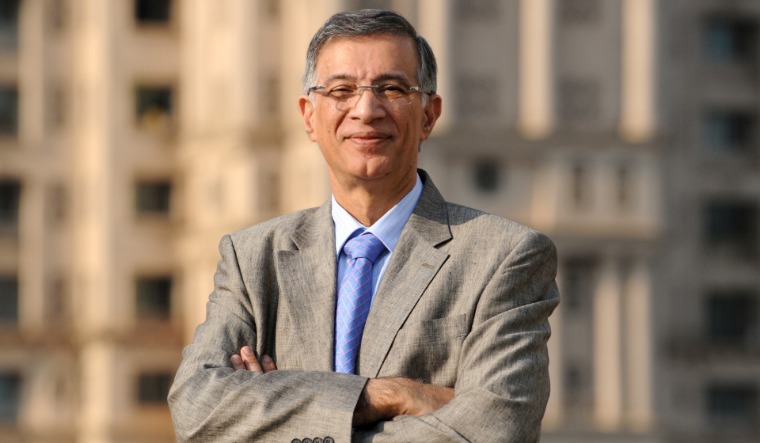Builder Niranjan Hiranandani has moved away from brick and mortar to building minds. He is very excited in his new role as provost of the newly inaugurated Hyderabad (Sindh) National Collegiate (HSNC) University, a cluster university in Mumbai. The HSNC Board is a reputed educational body that runs 14 colleges in Mumbai. The new university is a cluster university, under the state government, with the governor of Maharashtra as chancellor.
In an interview with THE WEEK, Hiranandani speaks about his new role and his vision.
What new ideas will your university bring to the academic table?
I was myself surprised at our vision. When we decided last year to start a university, we decided that 20 per cent of the teaching will be online, and had started planning accordingly. So the pandemic did not bring any surprise; we were easily able to scale the online component to 100 per cent. We had also envisioned a cross-disciplinary, or as the Americans call it, a liberal education programme, which allows students to major in one particular subject and study other subjects that are not necessarily part of that stream. The National Education Policy 2020 has also stressed on the same mode.
We have designed an inbuilt flexibility into our systems, which makes it possible for us to change the curriculum every year, in every discipline, if the need arises. We also have a strong focus on integrating with industry and businesses, and therefore have plans for mandatory internships and apprenticeships from the second year onwards.
You are also planning new courses, aren't you?
Yes, we want to diversify into various schools. We are beginning with the Schools of Yoga, Dance Music and Performing Arts and Digital Education. We hope to start full degree courses in each of these subjects when the academic year begins by mid-October.
Every item, however, cannot be put into the curriculum, so we plan to have certificate courses to bridge the gap between formal academics and industry requirements, with courses in subjects like negotiation and speaking skills. There will also be refresher courses for professionals who may want to update their skills, for instance in video editing.
Another big plan is to have multi-disciplinary research, with various departments pooling in their expertise, on a subject of social benefit. One example of this would be how to minimise releasing untreated sewage into the sea, and the uses that the treated water can be put to in a city like Mumbai.
One of the colleges in your cluster university is the prestigious Bombay Teacher's Training College. What are your plans in training the trainers?
Teaching in India has not been given the due it deserves. We have big plans for teachers' training, with special courses for the International Baccalaureate system. Our training syllabus will incorporate the utilisation of new technologies in teaching as well as in new systems of examinations—online, quiz method for instance. Again, we intend linking of education with the job market. There are so many plans and ideas.
For a builder to jump into education, it's an interesting move, shall we say?
Yes. I am very excited about my new role as provost of the university; I will be hands on with the running of the university. I am not new to education. We (the Hiranandani Group) already run two schools in Mumbai.
Education is a very exciting field right now because I believe that knowledge is going to become obsolete every 10 years; it will not have the shelf life of 25 and more years as it did in our times. There is an opportunity to do so much in education. I want to be part of the revolution in education.



